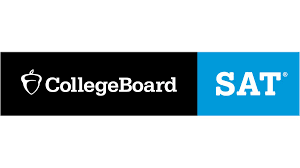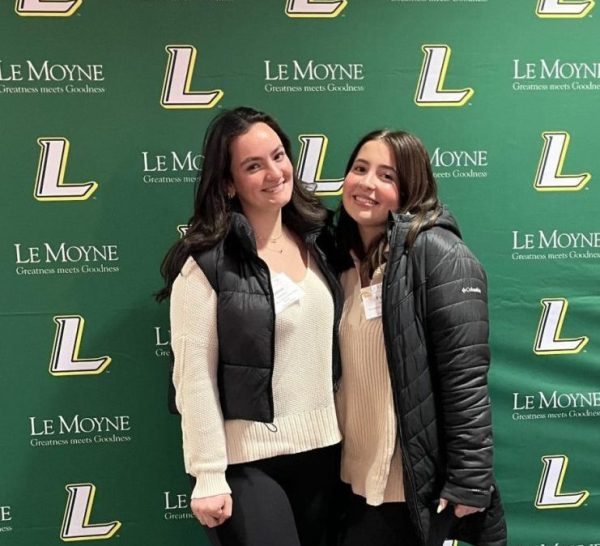Looking Ahead: How to Prepare for College

Any discussion of the future is one of the most disliked topics among high school students. From ‘What do you plan on doing with your future?’ to ‘Have you started looking into schools yet?’, the questions get piled up and are extremely overwhelming, especially when you don’t even know where to start. The Johnny Green sat down with Weedsport High School Counselor Jessica Bradtke to help you get a better understanding of the college process and the resources available to help along the way.
Bradtke laid out a general basis of where you should be relative to your college search during your junior and senior years. “So at the beginning of the year for juniors, it’s important to start if you haven’t already, start doing your research on colleges and thinking in about what it is that you want to do when you leave high school.”
Having some sort of idea, no matter how small, can be essential to tackling the process of finding colleges and/or majors that are right for you (College Board search engine: (https://bigfuture.collegeboard.org/). If finding something that you are passionate about is not working, it can also be helpful to begin looking at colleges based on location or class size to find a place right for you. “If you are undecided, that is okay, that happens quite frequently… but you definitely want to start getting familiar with college websites and taking tours of colleges.”
The most important thing is to familiarize yourself with different colleges and find what will be expected of you to apply/get into the college of your choice (acceptance rates, freshman requirements, financial aid, scholarships, transcript information, etc.).
Other than looking into colleges, the PSAT is typically taken in October for juniors and is highly recommended. There is no need to prepare for the PSAT, as it is just practice, but it is still important to take it if you are planning to attend college. Taking the PSAT will allow you to prepare for the SAT in the spring, which is required by most four-year colleges. Covid-19 has changed the rules on the use of standardized testing on applications, and it is still unclear when they will be required again. In any case, taking the PSAT/SAT is good practice with standardized testing, which will be necessary for college.
The SAT (and ACT) is then offered in the spring for juniors and seniors, however, if you do not like your score there are plenty of times to retake the test for a better score (Seniors who are unhappy with their score will be able to retake the SAT in August-December). Weedsport does not offer any prep courses, but they try to push any courses in the community. CCC has offered courses in the past, but due to Covid-19, there is no word on when or if it will continue soon. Bradtke states the best way to prepare yourself for the PSAT/SAT is through Khan Academy or the CollegeBoard websites. Www.collegeboard.org is a website that all students should familiarize themselves with if they plan on taking the SAT/ACT. It contains tons of information and practice to prepare for the test. Www.khanacademy.org is an amazing study tool that contains many subjects, however, the SAT is the most useful as they can create personalized practice plans for each student based on their needs.
Nearing the end of your junior year, you should have narrowed down your college list and begun looking into financial aid and scholarships with your parents or guardian. “You definitely want to do some research on the FAFSA ( FAFSA: https://studentaid.gov/) and the different financial aids that are out there so when it comes to October of your senior year when the applications become available to you, you’ve got all your ducks in a row.” FAFSA is open from October 1- June 30, however, it is important to apply sooner rather than later and the document takes time to get through. There is a scholarship binder in counseling for seniors, but it is largely the student’s job to find scholarships for themselves.
Throughout junior and senior years, many different activities are offered in the community to familiarize students with college. WWW.suny.edu also has tons of information on all of their schools to get a better understanding of their programs and upcoming events. There are also SUNY pamphlets in the counseling office. Most local college fairs are pushed by counseling and students are notified beforehand.
At the end of your junior year, one decision a student might need to make is if they plan to participate in collegiate athletics. One aspect of college sports is the recruitment process.
Junior Trinity Davis has recently been going through the recruitment process for her achievements in softball. “I have been a little nervous in doing all of this. I’m really young and trying to make a big life decision has been hard. I want to do what’s best for me but I’m not really sure what that is yet. I do feel like I am ahead of the game though. I’ve gotten a good start on this, so if I change my mind I have leeway if I need it,” Trinity stated when asked about the difficulties of starting your college search so soon in her junior year.
The process of recruitment can work in many different ways for different schools. Typically, coaches from different schools will travel and watch players during games. If they see potential in a certain player they will either speak with your coach or use one of the many recruitment websites available. Recruiting websites are profiles for players that allow student-athletes to post their stats and game footage, and allow coaches to directly contact you. If you are contacted, the most important thing is to keep in contact so they know you are interested. From there you can invite them to more games and discuss if you are a right fit for the team.
Leaving summer and entering fall of senior year, you should have a good idea of the schools you want to apply to. “Heading into senior year…the goal is to have your list of however many schools you are going to apply to. That varies from student to student, however, I encourage students to apply to at least three,” Bradtke said.
You will begin working on your college application right at the beginning of the year. Your English classes will help to begin the process of the college essay by reviewing the prompts and giving feedback. During this time, Mrs. Bradtke will be in classrooms helping students get familiar with the Common App. WWW.commonapp.org is what most colleges will use for the application process. The good thing about that is you will be able to submit applications to multiple schools all in one place. “It’s like a one-stop-shop,” Bradtke said, “They also have resources for getting ready to apply, so it’s another good resource for juniors.”
Also, going into the senior year it is important to know what type of decision you are going to use when applying. There are three different types of decisions when applying for college: early action, early decision, and regular decision. Deadlines for each type of application vary but the general time is as follows: Early decision/action- November 1st, Regular decision- January 15th. Regular decision is the typical college application. The early decision means that you are telling a college that you apply to that they are your first choice and if they accept you, you will drop every other school you may have applied to. If you choose this, it is a binding contract, and if you are accepted, you will have to withdraw from all other schools. Early action allows for you to tell the school they are your first choice but, you are still allowed to view other options before making a decision.
“Essentially, you’re working on your application all the way until you submit it and then it is the waiting game,” Bradtke stated. After receiving your responses from colleges it is then time for you to compare what each college is willing to offer you and make a final decision for your future.
Once your decision is made it is crucial to maintain your grades. Colleges are able and willing to revoke acceptances if you do not perform to the best of your ability during the remainder of your senior year.
The college process is scary and is a lot to tackle on your own. Knowing your options and having resources is the first step to planning the rest of your future. Any other college-related questions can be answered at the counseling office and see additional resource links below.
Additional Resources
PSAT/SAT:
What test to take:https://www.usnews.com/education/best-colleges/articles/act-vs-sat-how-to-decide-which-test-to-take?src=edu_advice4
Financial aid:
What is FAFSA: https://www.usnews.com/education/best-colleges/paying-for-college/articles/completing-the-fafsa?src=edu_advice5
CSS aid: https://cssprofile.collegeboard.org/pdf/css-profile-student-guide.pdf
Excelsior scholarship: https://www.hesc.ny.gov/pay-for-college/financial-aid/types-of-financial-aid/nys-grants-scholarships-awards/the-excelsior-scholarship.html
Application:
College Essay: https://www.usnews.com/education/best-colleges/paying-for-college/articles/completing-the-fafsa?src=edu_advice5









